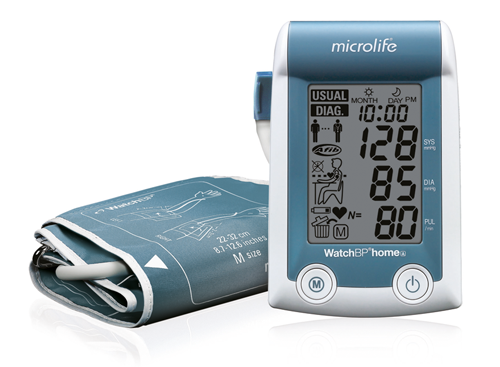PIAAF-FP
Screening Intervention for Stroke Prevention.
| Study Progression Status | Number of Sites | Number of Patients Enrolled |
|---|---|---|
| Enrollment Complete | 22 | 2174 |
 The prevalence of atrial fibrillation (AF) in the population is rising, and about one in four individuals over age 40 will develop this arrhythmia. Untreated, AF can carry up to a 5-fold increase in the risk of stroke. AF is also independently associated with a significant increase in congestive heart failure, cognitive impairment and mortality. When AF is identified, scoring systems are available for estimating an individual’s risk for complications and clear guidelines exist to direct appropriate treatment.
The prevalence of atrial fibrillation (AF) in the population is rising, and about one in four individuals over age 40 will develop this arrhythmia. Untreated, AF can carry up to a 5-fold increase in the risk of stroke. AF is also independently associated with a significant increase in congestive heart failure, cognitive impairment and mortality. When AF is identified, scoring systems are available for estimating an individual’s risk for complications and clear guidelines exist to direct appropriate treatment.
To help meet the C-SPIN Network’s aim to reduce stroke by 10%, the PIAAF-FP team will take advantage of new technology that makes screening for AF easier. Using blood pressure devices with built in AF detection and hand held ECG machines, the PIAAF-FP study will shift AF screening to the general practitioners office. The goal in PIAAF-FP is similar to the other PIAAF studies – to identify at risk patients that fall into one of two groups; 1) those with unrecognized AF and 2) those diagnosed with AF but not receiving appropriate OAC therapy.
Through the PIAAF-FP study we hope to identify the most efficient, acceptable and cost-effective opportunistic method for detection of untreated (or under-treated) atrial fibrillation in patients aged ≥65 years in the Family Practice setting. Subsequently, we hope to find out whether detection of actionable atrial fibrillation will lead to the provision of guideline-recommended therapy.
Value towards Network Vision
The primary aim of this study is to determine the prevalence of “actionable” AF in the family practice setting. The team hopes that with the availability of new screening tools and readily obtainable novel oral anticoagulants, the burden stroke can be alleviated by identifying at risk patients earlier. A better understanding of stroke prevention through early detection and treatment of AF will help to inform guidelines, change practice and reduce health costs.
Investigators:
| F. Russell Quinn, M.D, | University of Calgary |
| Noah Ivers, M.D. | University of Toronto |
| David Gladstone, M.D. | University of Toronto |
| Jeff Healey, M.D. | McMaster University |
